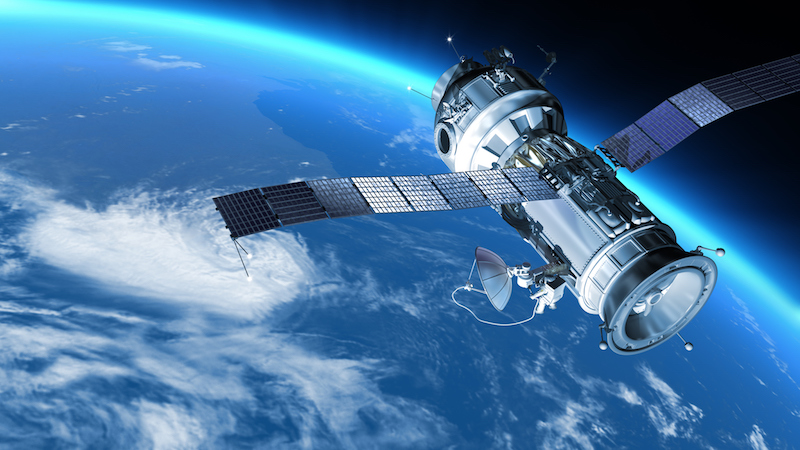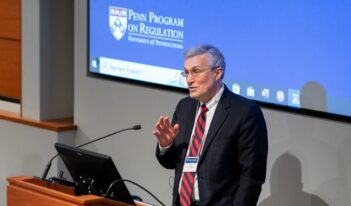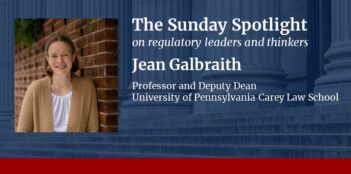
Expert offers framework for regulating 21st century space travel.
What can rocket-fueled spaceships learn from lumbering cargo ships? Quite a lot, at least when it comes to regulating navigation, according to a recent article published in the journal Nature.
Professor Joan Johnson-Freese of the U.S. Naval War College contends that the existing international agreement governing outer space is outdated and should be replaced with rules modeled after norms used by cargo ships sailing on the high seas.
The primary international agreement governing outer space, the Outer Space Treaty, turned 50 last year. But according to Johnson-Freese, the treaty cannot address 21st century space travel challenges such as pollution, waste, and overcrowding.
These modern issues pose an ongoing risk for both satellites and manned missions to space. The International Space Station has repeatedly had to dodge extraterrestrial garbage known as “space junk.” Hundreds of thousands of pieces of space junk now orbit our planet—some of them as large as a school bus. Even debris as small as a baseball, according to NASA, could cause significant damage to a satellite or manned spaceship upon impact.
Furthermore, Johnson-Freese notes that outer space has become increasingly crowded as more nations and private companies have entered space. Approximately 1,100 active satellites currently orbit our planet, in addition to 2,600 defunct satellites that roam the outer atmosphere like zombies. In 2009, one such zombie satellite collided with an active American satellite, destroying both satellites and creating thousands of additional pieces of debris.
In response to these challenges, Johnson-Freese proposes the use of non-binding regulatory guidelines such as those used by ship captains to navigate crowded shipping lanes.
Seafaring countries agreed upon these non-binding rules—encapsulated in the Convention on the International Regulations for Preventing Collisions at Sea—because of their need to standardize navigation rules for ships in the 1970s. The type of “soft law” embodied in the Convention—guidelines that “have legal significance but are not binding”—provides valuable guidance for current issues on the use of outer space, according to Johnson-Freese.
Johnson-Freese sees parallels between the 1970s and today. China, Russia, the United States, and many other countries continue to engage in a “space race,” she notes, with each country deploying sophisticated technologies that could pave the foundation for space warfare.
At the same time, non-governmental entities are competing over growing private space industries. Companies such as SpaceX and Planetary Resources, according to Johnson-Freese, have introduced new motivations such as economic development and human settlement that are “diversifying the space landscape.”
Johnson-Freese argues that, with geopolitical and economic interests on the line, any attempt at a wide-ranging international agreement would be derailed by national rivalries. Although scholars such as professor Steven Freeland of Western Sydney University have advocated for a comprehensive update of the original Outer Space Treaty, Johnson-Freese contends that such a comprehensive agreement is unlikely to succeed. As support, she notes that the United States recently rejected two proposals for a United Nations ban on weapons in space, in 2008 and 2014.
In contrast, Johnson-Freese states that countries are more likely to agree on purely logistical issues such as collision avoidance. Unlike with more contentious military issues, she maintains that most spacefaring countries have an interest in coordinating protocols to avoid crashes between satellites, reduce the proliferation of debris, and manage environmental issues in space. Because of the mutual interest in working together, she argues that nations do not need a legally binding international treaty like the Outer Space Treaty. Instead, she states that informal guidelines can address the underlying issues.
By starting agreements on smaller and simpler issues, Johnson-Freese contends, nations will be able to lay the foundation for future coordination on thornier issues like space weaponization. Building mutual understanding and trust early on, Johnson-Freese says, will be key to avoiding future conflict. And with the Outer Space Treaty now at the half-century mark, her approach, if adopted, could provide a foundation for governing the next 50 years of space travel.



